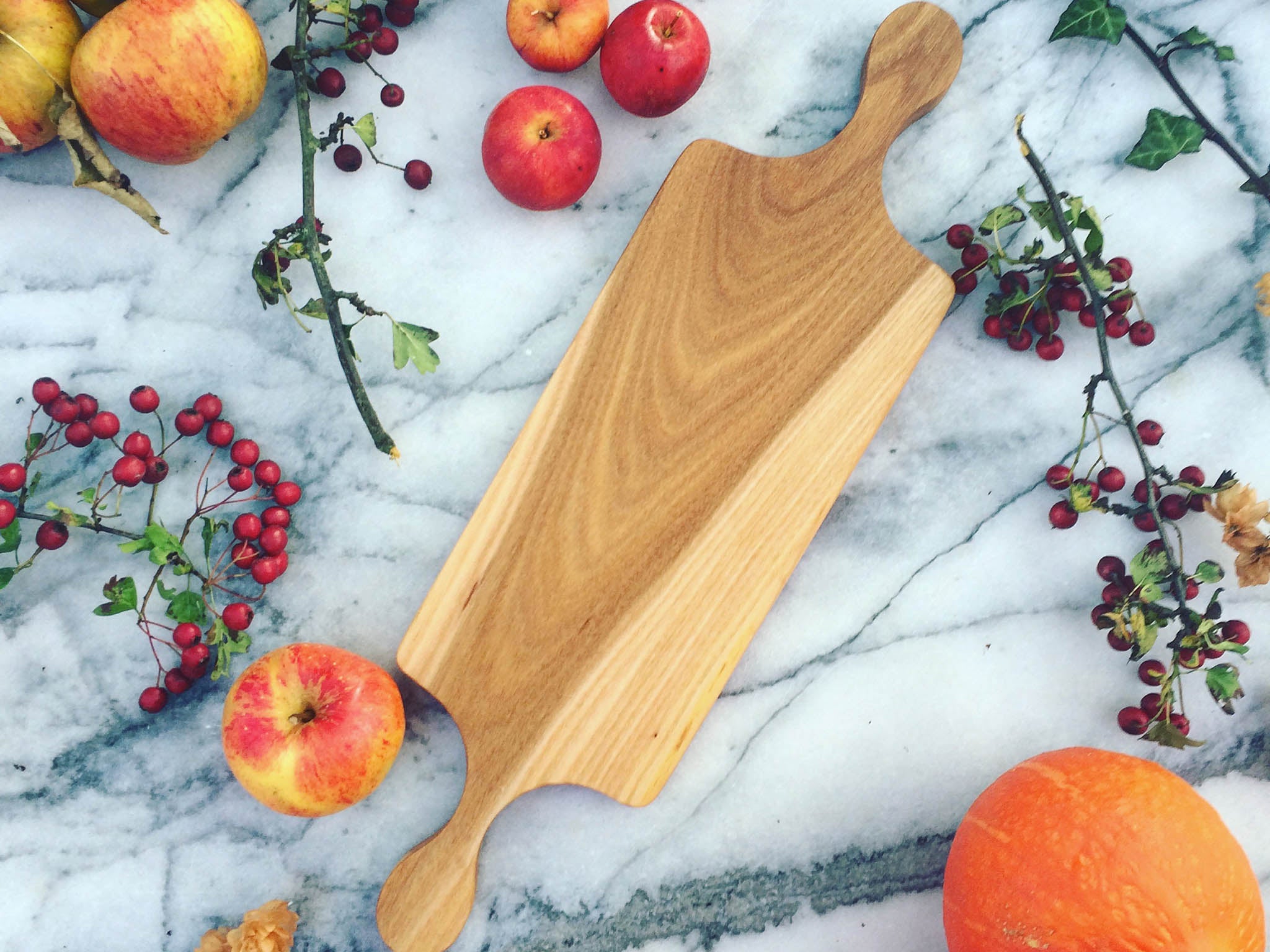Counter culture: The humble chopping board
Not long ago, it seemed the wooden cutting board was up on the chopping block, with plastic making its way into the kitchen. But once again, the tables have turned. Julia Platt Leonard explains why

There was a time when it looked like the wooden chopping board’s days were numbered. After centuries of slicing and dicing and chopping and carving, wooden boards were no longer welcome in the kitchen. Suddenly plastic boards were a must and wooden boards were decried as bastions of bacteria and a case of food poisoning waiting to happen.
But now the pendulum has swung back. Studies have shown that plastic boards can be more – not less – problematic when it comes to food hygiene. Plastic boards may be easier to sanitise but they also develop scratches and grooves where bacteria can thrive. Wood, on the other hand, has naturally occurring antibacterial properties.
But hygiene is only one reason why wooden cutting boards are a joy. Wood is sturdy so it provides a great surface on which to cut but it also has a bit of give so it doesn’t ruin your knives. It doesn’t impart any flavour to your food and a well made board from hard wood can last a long time.
They’re also things of beauty. Take the boards made by Devon-based designer-maker, Rosie Brewer. She crafts both one-off and batch production pieces of woodenware including spoons, knives, spatulas and lots and lots of wooden chopping boards. Her parents ran a sawmill next to their home, so she has grown up with woodwork. After studying 3D design at Camberwell College of Arts she gravitated to woodworking and set up her own workshop and created her own designs.
What makes a well-crafted board such a delight is that each tree is different and each board captures a unique wave of grain and colour. Brewer’s rippled round walnut board is a perfect case in point – the gentle undulations of the deep walnut grain are echoed by the round curves of the board. It’s something you want to use but also something to gaze at with complete admiration at what Mother Nature has made, with a bit of help from humans.
“Since learning to carve,” Brewer says, “I have discovered how much each species varies in carve-ability. Sycamore has a very tight and even grain and, with a sharp knife, is a dream to carve compared to a piece of gnarly elm which only likes to be carved in a certain direction and can be a really laborious task, although it looks stunning once finished.”
New to the board game are Rocksalt Living which launched this month with a wooden homewares line including two hefty boards made from solid pieces of Niangon wood – a sustainably sourced wood from Ghana. Company founder and designer Marika Arapoglou says she chose this wood because it has excellent water repellent qualities and also a super smooth surface so it’s gentle on knives and other kitchen equipment.
“Rocksalt Living is about bringing nature into our homes through objects made with natural materials,” she says. “Designing a chopping board – an object you use everyday – was an ideal way to bring this feeling into life through the process of cooking and food preparations.”
For cooks who want the best of plastic and wood, an option is a wood composite board like the ones made by Epicurean. They started out making eco-friendly municipal skate parks in the US and realised that the same wood composite that makes the ramps durable and non-porous, make for an excellent cutting surface. Independent kitchen shop owner Holly Wilson of Prep Cook Shop says she’s seeing a rise in sales of these boards.
“I have swapped all of my old wooden traditional boards for these boards now. They are just so practical. They go in the dishwasher, can be sanded down like a traditional board but are kind to your knives.” They also come with non-slip feet so the board doesn’t slide around and because you can pop them in the dishwasher, they’re ideal for prepping meat or fish.
Rough Stuff Oak have taken an unusual tack in the board business. They started five years ago when they were asked to source quality English oak boards but couldn’t find any. They decided to make their own, but soon demand outstripped what they could produce. They set up a workshop at nearby Mount Prison in Hertfordshire where inmates now make all their boards. Around 20 men are employed in the workshop and produce around 15-20,000 oak products a year. While most of their boards end up in the restaurants, hotels and catering companies, they do a consumer line as well.
With wood back in favour, there’s never been a better time to add a new chopping board to your own collection. Cast your eye on Rosie Brewer’s cherry board with its honeyed tones and naturally occurring dark streaks or Rocksalt Living’s simple, sturdy, yet supremely elegant boards and you’ll feel intensely happy that the traditional wooden board is back in our kitchens, right where it belongs.
Subscribe to Independent Premium to bookmark this article
Want to bookmark your favourite articles and stories to read or reference later? Start your Independent Premium subscription today.

Join our commenting forum
Join thought-provoking conversations, follow other Independent readers and see their replies